Introduction
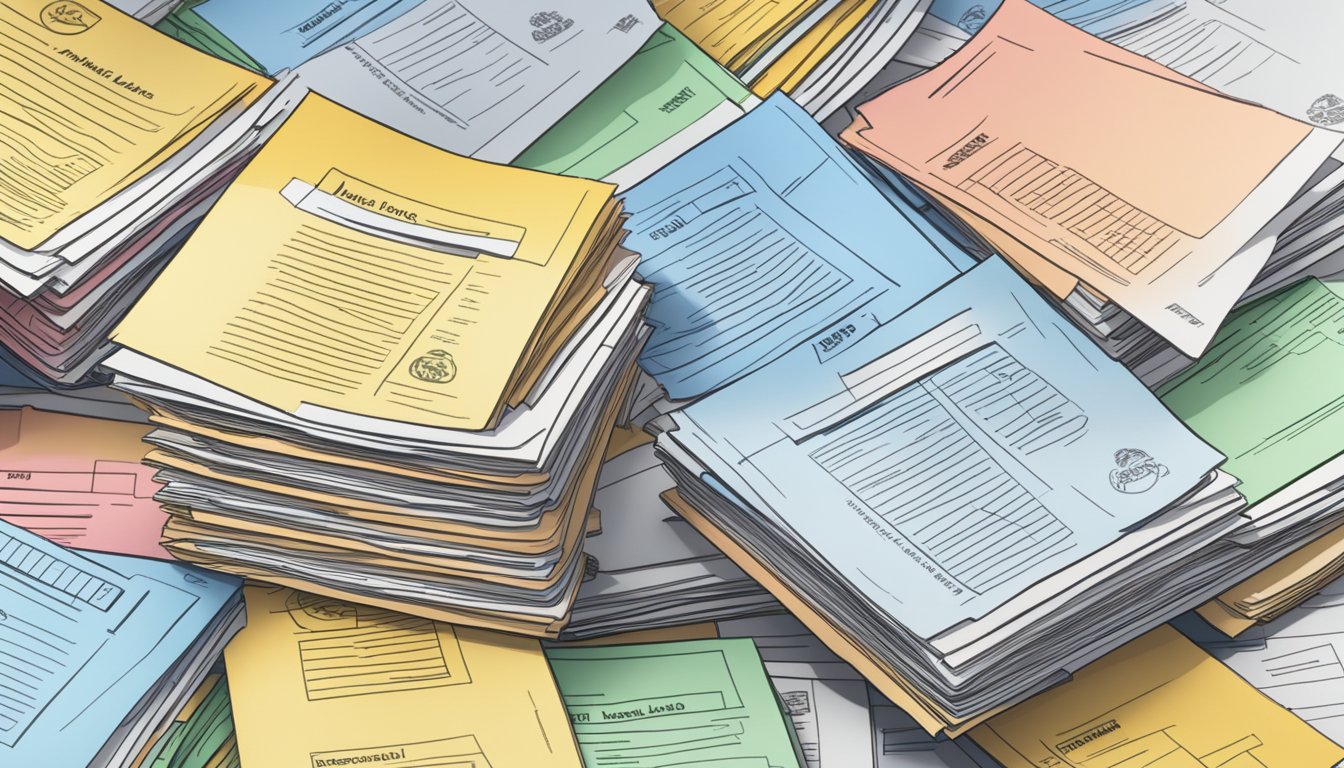
If you are a Singaporean homeowner, you may be aware of the Housing Development Board (HDB) accrued interest. The HDB accrued interest is the interest that you would have earned if your CPF savings had not been withdrawn for housing. This interest is calculated using the CPF principal amount withdrawn for housing every month at the current CPF Ordinary Account interest rate.
Understanding HDB Accrued Interest
The HDB accrued interest is a crucial concept that every Singaporean homeowner should understand. When you use your CPF savings to purchase an HDB flat, you are essentially borrowing money from your CPF account. This borrowed amount is subject to interest, which is the accrued interest. The accrued interest is not a separate charge but is included in the total amount that you would have to repay when you sell your HDB flat.
HDB and CPF: A Symbiotic Relationship
The HDB and CPF have a symbiotic relationship, where the CPF is used to finance the purchase of HDB flats. The CPF is a mandatory savings scheme for Singaporeans, and a portion of your monthly salary is automatically deducted and contributed to your CPF account. The CPF can be used for various purposes, including purchasing an HDB flat, paying for education, and retirement planning. The HDB and CPF work together to provide affordable housing for Singaporeans while ensuring that CPF members have adequate savings for their retirement.
Key Takeaways
- The HDB accrued interest is the interest that you would have earned if your CPF savings had not been withdrawn for housing.
- When you use your CPF savings to purchase an HDB flat, you are essentially borrowing money from your CPF account, and this borrowed amount is subject to interest, which is the accrued interest.
- The HDB and CPF have a symbiotic relationship, where the CPF is used to finance the purchase of HDB flats, while ensuring that CPF members have adequate savings for their retirement.
Understanding HDB Accrued Interest
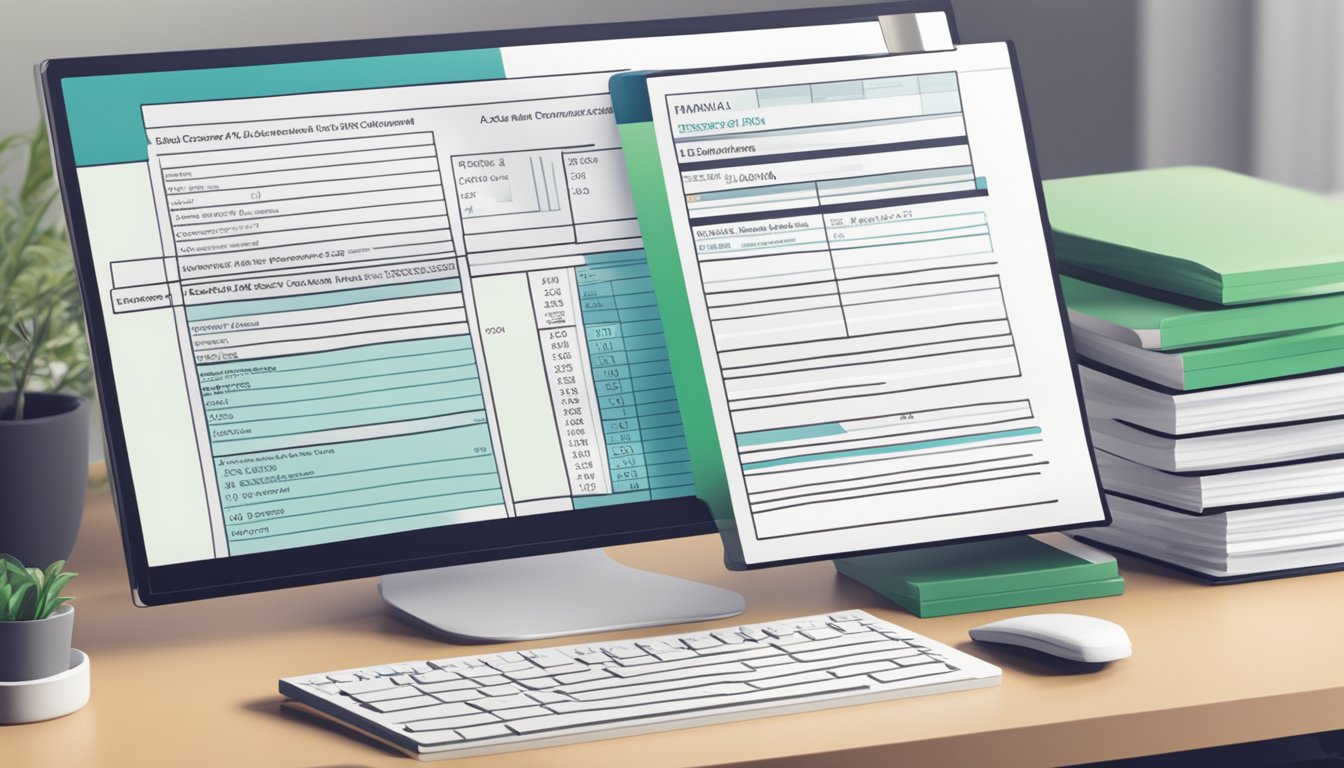
If you are a homeowner in Singapore, you may have heard of HDB accrued interest. This is the interest that you would have earned if your CPF savings had not been withdrawn for housing. In this section, we will go over the basics of HDB accrued interest, the CPF accrued interest mechanism, and the impact it has on housing loans.
Accrued Interest Basics
Accrued interest is the interest that accumulates on a loan or investment over time. In the case of HDB accrued interest, it refers to the interest that you would have earned on your CPF savings if you had not withdrawn them for housing. The interest rate for HDB accrued interest is calculated at a rate of 2.5% per annum and compounded yearly.
CPF Accrued Interest Mechanism
When you use your CPF savings to pay for your HDB flat, the amount you use is withdrawn from your CPF Ordinary Account (OA) and transferred to the HDB. The amount withdrawn is considered a loan from your CPF account, and you are required to repay it with interest when you sell your flat.
The interest that you are required to pay is the CPF accrued interest, and it is calculated based on the amount of CPF savings you have withdrawn for your flat, the interest rate, and the length of time you have used the savings. The CPF accrued interest is charged to the CPF account holder, not the property itself, which means that you will need to pay back the principal amount plus the accrued interest.
Impact on Housing Loans
The impact of HDB accrued interest on housing loans is significant, as it can add up to a substantial amount over time. For example, if you use $100,000 of your CPF savings to pay for your HDB flat, the accrued interest over 20 years would be $81,398. This means that when you sell your flat, you would need to repay the $100,000 principal plus the $81,398 accrued interest, for a total of $181,398.
It is important to note that the CPF ordinary account interest rate is currently at 2.5% per annum. This means that if you use your CPF savings to pay for your HDB flat, you are essentially borrowing from yourself at a lower interest rate than what you would pay if you had taken out a bank loan. However, the CPF accrued interest can still add up over time, so it is important to factor it into your financial planning when purchasing a home in Singapore.
In summary, HDB accrued interest is the interest that you would have earned on your CPF savings if you had not withdrawn them for housing. It is calculated at a rate of 2.5% per annum and compounded yearly. When you use your CPF savings to pay for your HDB flat, you are required to repay the principal amount plus the accrued interest when you sell your flat. The impact of HDB accrued interest on housing loans can be significant, so it is important to factor it into your financial planning when purchasing a home in Singapore.
HDB and CPF: A Symbiotic Relationship
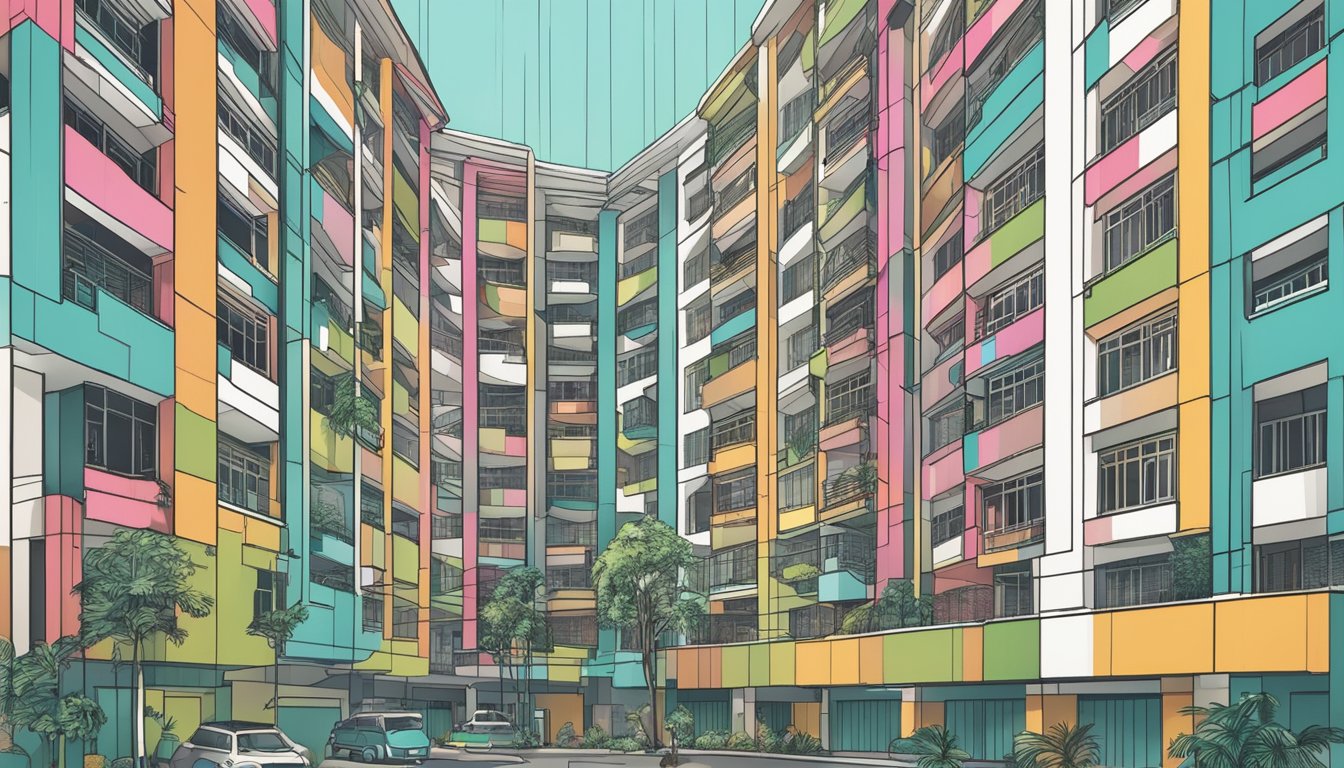
If you’re a homeowner in Singapore, you’re likely familiar with the symbiotic relationship between HDB and CPF. HDB, or the Housing and Development Board, is a government agency responsible for public housing in Singapore. CPF, or the Central Provident Fund, is a mandatory savings scheme for Singaporeans and Permanent Residents to fund their retirement, healthcare, and housing needs.
Using CPF for HDB Purchases
One of the primary ways that CPF and HDB interact is through the use of CPF funds for HDB purchases. Singaporeans can use their CPF Ordinary Account (OA) savings to pay for their HDB flat, which can cover up to 15% of the purchase price. This is a great way to finance your home without having to dip into your savings or take out a loan.
However, it’s important to note that using CPF funds for housing comes with accrued interest, which can affect your finances when you sell your property. The interest is computed on the CPF principal amount withdrawn for housing on a monthly basis (at the current CPF Ordinary Account interest rate) and compounded yearly. This means that the longer you hold onto your property, the more accrued interest you will have to pay back when you sell it.
CPF Housing Grants Explained
In addition to using CPF funds for HDB purchases, Singaporeans can also apply for CPF Housing Grants to help with the downpayment. The Enhanced CPF Housing Grant (EHG) is one such grant that provides up to $80,000 in assistance for first-time homebuyers.
To be eligible for the EHG, you must meet certain criteria, such as being a first-time homebuyer, having a monthly household income of $9,000 or less, and purchasing a new or resale flat from HDB. The grant can be used to cover the downpayment and other costs associated with purchasing a home.
Overall, the relationship between HDB and CPF is essential for many Singaporeans looking to purchase a home. By using CPF funds and applying for housing grants, you can make homeownership more accessible and affordable. However, it’s important to understand the accrued interest and other costs associated with using CPF for housing, so you can make informed decisions about your finances.
Financial Implications of Selling Your HDB Flat
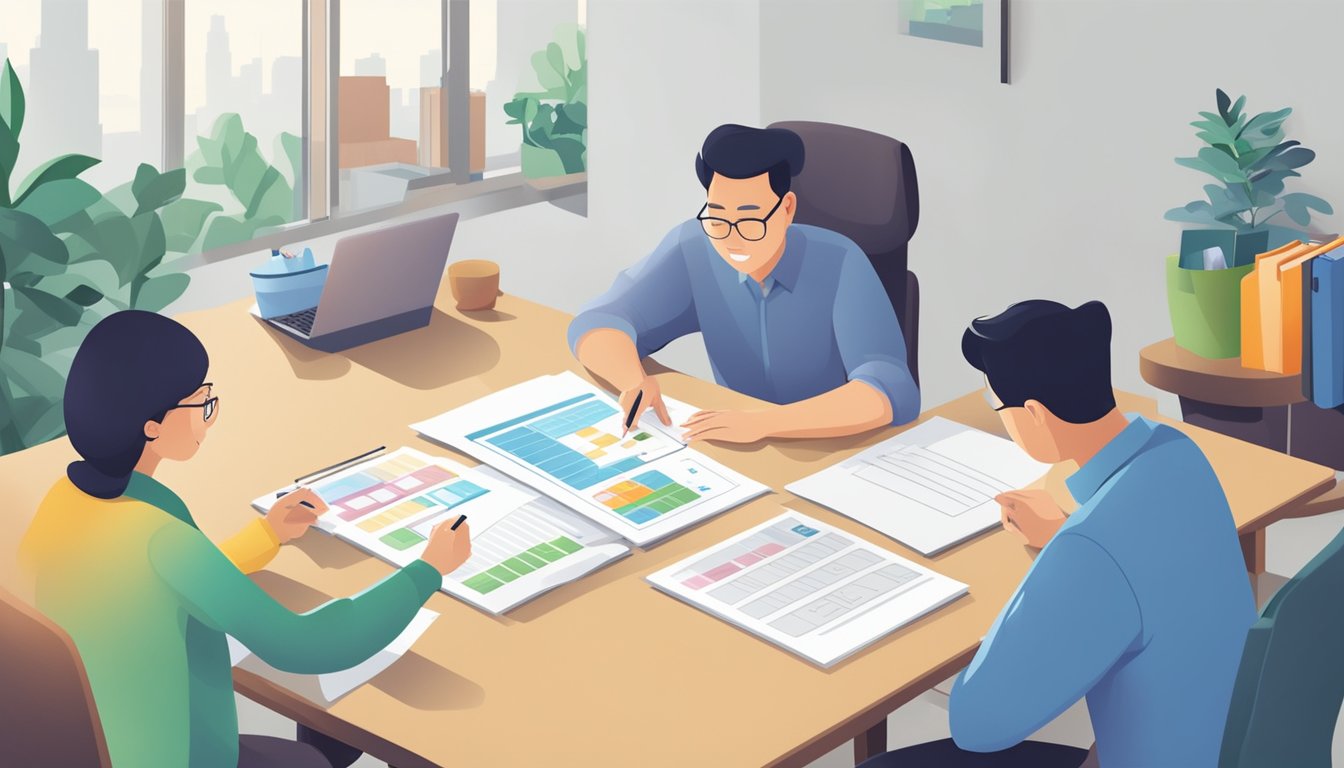
If you are planning to sell your HDB flat, it is important to understand the financial implications associated with it. Here are some important factors to consider:
Calculating Accrued Interest Upon Sale
When you use your CPF savings for purchasing an HDB flat, the amount that you withdraw comes with accrued interest. This means that the interest you would have earned if you did not withdraw the money for housing is added to the principal amount that you withdraw.
If you sell your HDB flat before the age of 55, you will need to refund the CPF principal amount withdrawn plus the accrued interest. The amount of accrued interest depends on the length of time you have held the property and the prevailing CPF interest rate.
The table below shows an example of how to calculate the accrued interest upon sale of an HDB flat:
| Principal amount withdrawn from CPF | $200,000 |
|---|---|
| Accrued interest (5 years at 2.5%) | $25,000 |
| Total amount to be refunded | $225,000 |
Sales Proceeds and CPF Reimbursement
When you sell your HDB flat, you will need to repay any outstanding HDB loan, including interest. The remaining sales proceeds will then be used to reimburse your CPF savings, including the principal amount withdrawn and the accrued interest.
It is important to note that the amount of CPF reimbursement may be affected by voluntary housing refunds or housing grants that you have received. If you have received more than $30,000 in grants, part of this amount may be credited to your Special Account/Retirement Account and MediSave Account.
Here is an example of how the sales proceeds and CPF reimbursement may be calculated:
| Sales proceeds from HDB flat | $500,000 |
|---|---|
| Outstanding HDB loan (including interest) | $270,000 |
| Legal and agent commission fees | $10,000 |
| Voluntary housing refund | $5,000 |
| Total deductions | $285,000 |
| Remaining sales proceeds | $215,000 |
| CPF reimbursement (principal amount + accrued interest) | $225,000 |
| Total CPF reimbursement | $225,000 |
In conclusion, selling your HDB flat involves several financial considerations that you need to be aware of. Understanding how to calculate the accrued interest upon sale and the sales proceeds and CPF reimbursement can help you make informed decisions and avoid any surprises.
Planning Ahead for Retirement
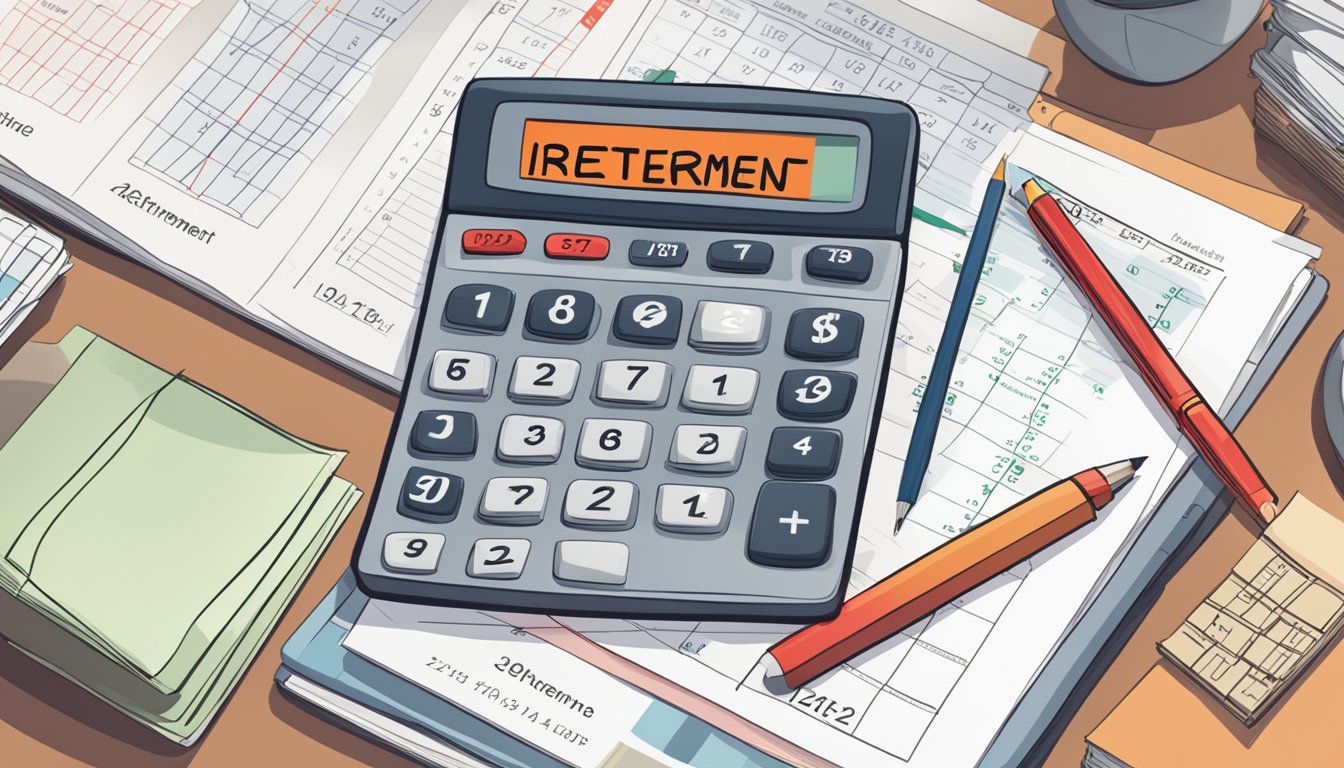
Retirement is a phase of life that we all look forward to. It is a time to relax and enjoy the fruits of our labour. However, to ensure that we have a comfortable retirement, it is important to plan ahead. One of the key aspects of retirement planning is balancing housing costs and retirement savings.
Balancing Housing Costs and Retirement Savings
Housing is one of the biggest expenses that we incur in our lifetime. In Singapore, most people purchase a property using their CPF accounts. However, this can have an impact on our retirement savings. When we use our CPF accounts to purchase a property, we need to repay the amount with accrued interest when we sell the property. This can reduce the amount of cash that we have on hand for our retirement.
To balance housing costs and retirement savings, it is important to plan ahead. One way to do this is to purchase a property that is within your means. This will ensure that you do not overstretch your finances and have enough cash for retirement. Additionally, you should consider downsizing your property as you approach retirement. This will not only reduce your housing costs but also provide you with a lump sum of cash that you can use for your retirement.
CPF Top-Ups and Retirement Account Planning
Another way to plan for retirement is to make CPF top-ups and plan your retirement account. The CPF system in Singapore offers various schemes that can help you save for retirement. For example, you can make voluntary contributions to your CPF accounts or use the Retirement Sum Topping-Up Scheme to top up your retirement account.
By making CPF top-ups and planning your retirement account, you can ensure that you have enough savings for retirement. The Full Retirement Sum and Basic Retirement Sum are the amounts that you need to have in your retirement account when you reach 55 years old. By planning ahead and making top-ups, you can ensure that you meet these requirements and have enough savings for retirement.
In conclusion, planning ahead for retirement is crucial to ensure that you have a comfortable retirement. Balancing housing costs and retirement savings and making CPF top-ups and planning your retirement account are two key aspects of retirement planning. By following these tips, you can ensure that you have enough savings for retirement and enjoy a stress-free retirement.
Investing in Your Next Property
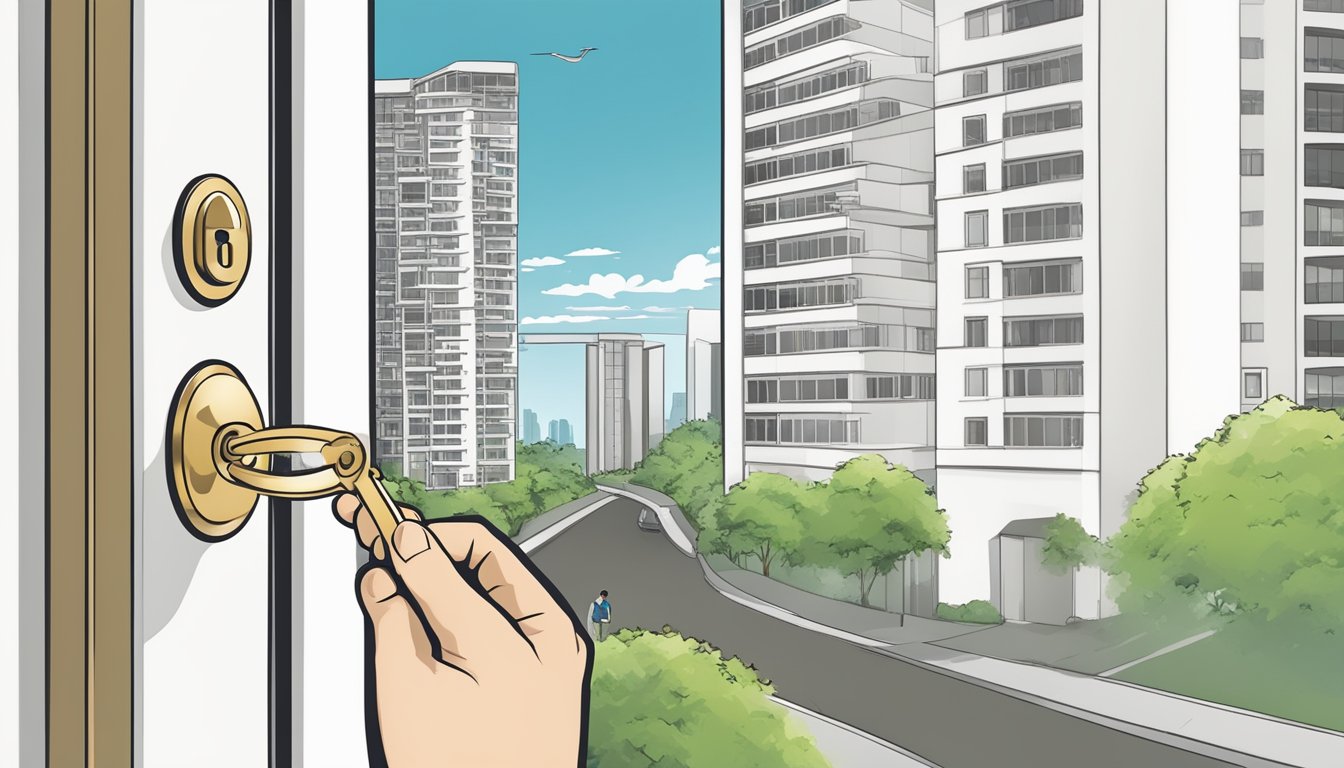
When it comes to investing in your next property, there are a few things to consider. Whether you are upgrading from an HDB flat to a private property or looking to make a fresh investment, you need to have a clear understanding of the market value and financing options available to you.
From HDB to Private Property
If you are upgrading from an HDB flat to a private property, you may be eligible for a housing loan from HDB or a bank. However, it is important to note that the accrued interest on your CPF savings used for the previous property will need to be paid back before you can use your CPF savings for the next property.
To calculate your accrued interest, you can use the formula: Accrued Interest = CPF savings x (1 + interest rate/12)^(months used). This amount can be paid back in cash or using your CPF savings.
Financial Strategies for Upgrading
When upgrading to a private property, you need to consider the financial implications. Legal fees and stamp duties are just a few of the additional costs that need to be taken into account. It is important to have a solid financial plan in place to ensure that you can afford the upgrade.
One strategy is to invest in your next property while still holding onto your current property. This allows you to benefit from any appreciation in value while still having a place to live. Another strategy is to use your CPF savings to pay for the downpayment and to take out a smaller housing loan. This reduces the amount of interest that needs to be paid back in the long run.
Overall, investing in your next property can be a smart financial move. However, it is important to have a clear understanding of the market value and financing options available to you. With the right financial plan in place, you can make a successful upgrade without breaking the bank.
Frequently Asked Questions
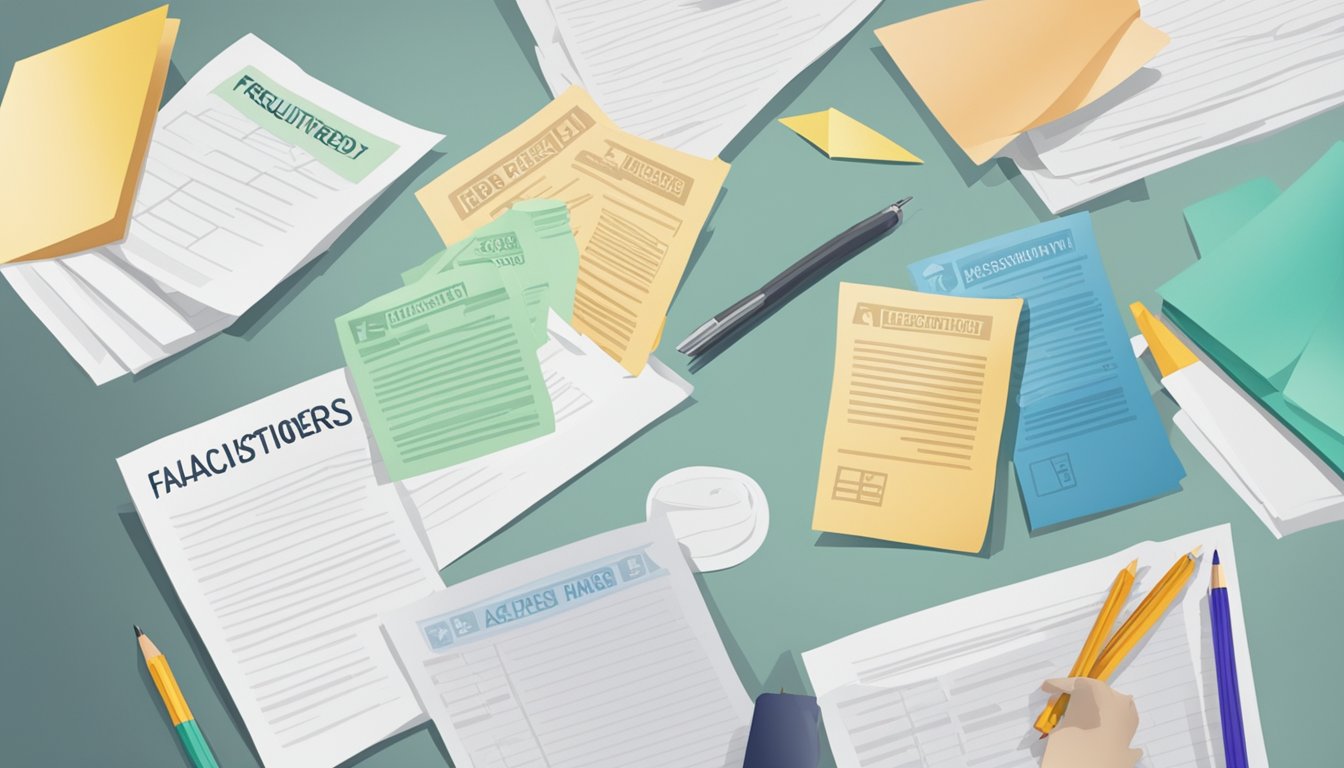
What are the current rates for HDB accrued interest?
The current interest rate for HDB accrued interest is 2.5% per annum. This rate is reviewed quarterly and is subject to change.
How can I calculate the accrued interest on my HDB flat?
Calculating the accrued interest on your HDB flat using CPF can be a bit tricky, but it is essential to understand how much you owe to avoid any surprises when it is time to sell your property. You can calculate the accrued interest on your HDB flat using CPF by taking the principal amount withdrawn for housing every month (at the current CPF Ordinary Account interest rate) and adding it up over the years.
Is it possible to fully pay off the accrued interest on my HDB loan?
Yes, it is possible to fully pay off the accrued interest on your HDB loan. You can do this by using your CPF funds or cash. However, it is important to note that paying off the accrued interest will not reduce the outstanding loan amount.
At what point does CPF stop accruing interest for my HDB purchase?
CPF stops accruing interest for your HDB purchase when you turn 55 years old. At this point, the accrued interest will stop accumulating, and you can start withdrawing your CPF savings.
What strategies are available to reduce the accrued interest on my HDB flat?
One strategy to reduce the accrued interest on your HDB flat is to make regular payments towards your outstanding loan amount. By doing this, you can reduce the amount of interest that accrues on your loan. Another strategy is to use your CPF funds to pay off the accrued interest.
After reaching the age of 55, what becomes of my HDB’s accrued interest?
After reaching the age of 55, your HDB’s accrued interest will stop accumulating, and you can start withdrawing your CPF savings. However, if you choose to keep your HDB flat, the accrued interest will continue to be charged until you fully pay off your outstanding loan amount.




